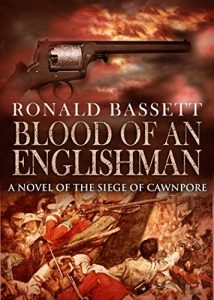British India, June 1857.
When rumours start circulating of a Sepoy mutiny across India, few in Cawnpore are ready to believe it. Not the ageing General Sir Hugh Wheeler, who believes in the loyalty of his Indian soldiers. Nor teenage Amelia Horne, whose mind is pre-occupied with the British officers of the town.
But when one of those officers is decapitated by his own Sepoys, there is no escaping the truth. Wheeler has decided against evacuating to the magazine in the north of the city, with its thick walls, ample ammunition and stores. Instead, he entrenches the British in the barracks, determined to wait for news and appear in control.
But two dilapidated buildings surrounded by a flimsy mud wall provide scant refuge against a blood-thirsty mutiny, organised by Nana Sahib, an aristocrat whose wealth was stripped by the East India Company. The mutiny becomes a siege.
Bullets, disease, starvation and sunstroke decimate the Europeans. Surrender is inevitable. When surrender is met by treachery and massacre only a handful escape with their lives.
One of these is Amelia Horne. But the price she pays for her life is one of slavery, and the quality of freedom is as terrible as captivity under sun and shot in the barracks.
Blood of an Englishman is an exhilarating account of the siege of Cawnpore that blends both fact and fiction.
Praise for Ronald Bassett
‘One of the most impressive things I found about the book was that you got a real feel for the time and place. Scenes set in India or England felt different and I think that's a great achievement.’ – Library Thing
Ronald Bassett was born in 1924 in Chelsea. During the Munich crisis, at age fourteen, he falsified enlistment papers to become a Rifleman of the King's Royal Rifle Corps (60th Rifles). Following active service, he was exposed and discharged. In his records, his colonel noted, ‘A good soldier. I am sorry to lose him.' Undismayed, he immediately entered the Royal Navy, in which he remained for fourteen years, serving in the Arctic, North Atlantic, Mediterranean, the Far East and, later, Korea. He died in 1996 in Surrey.






